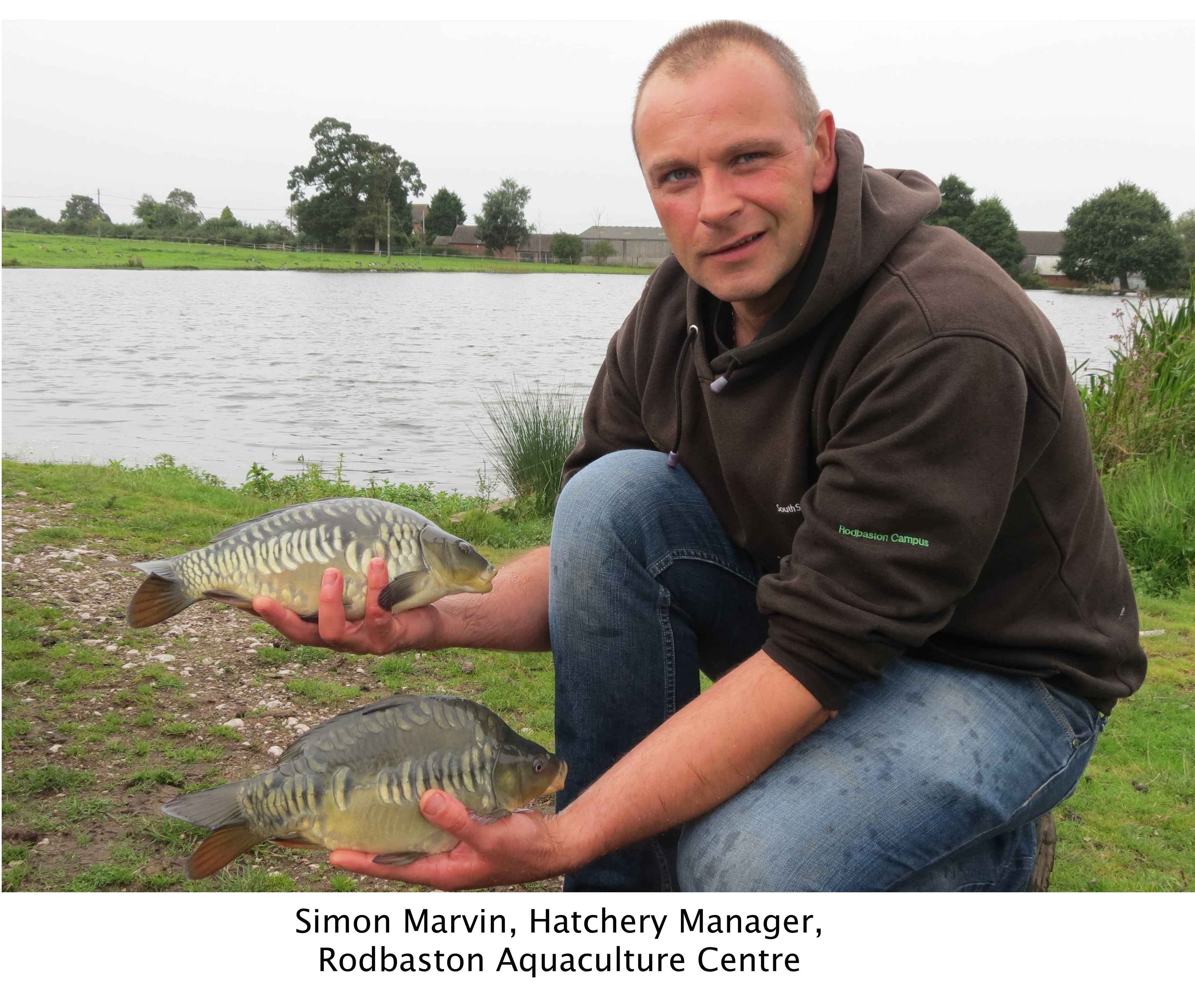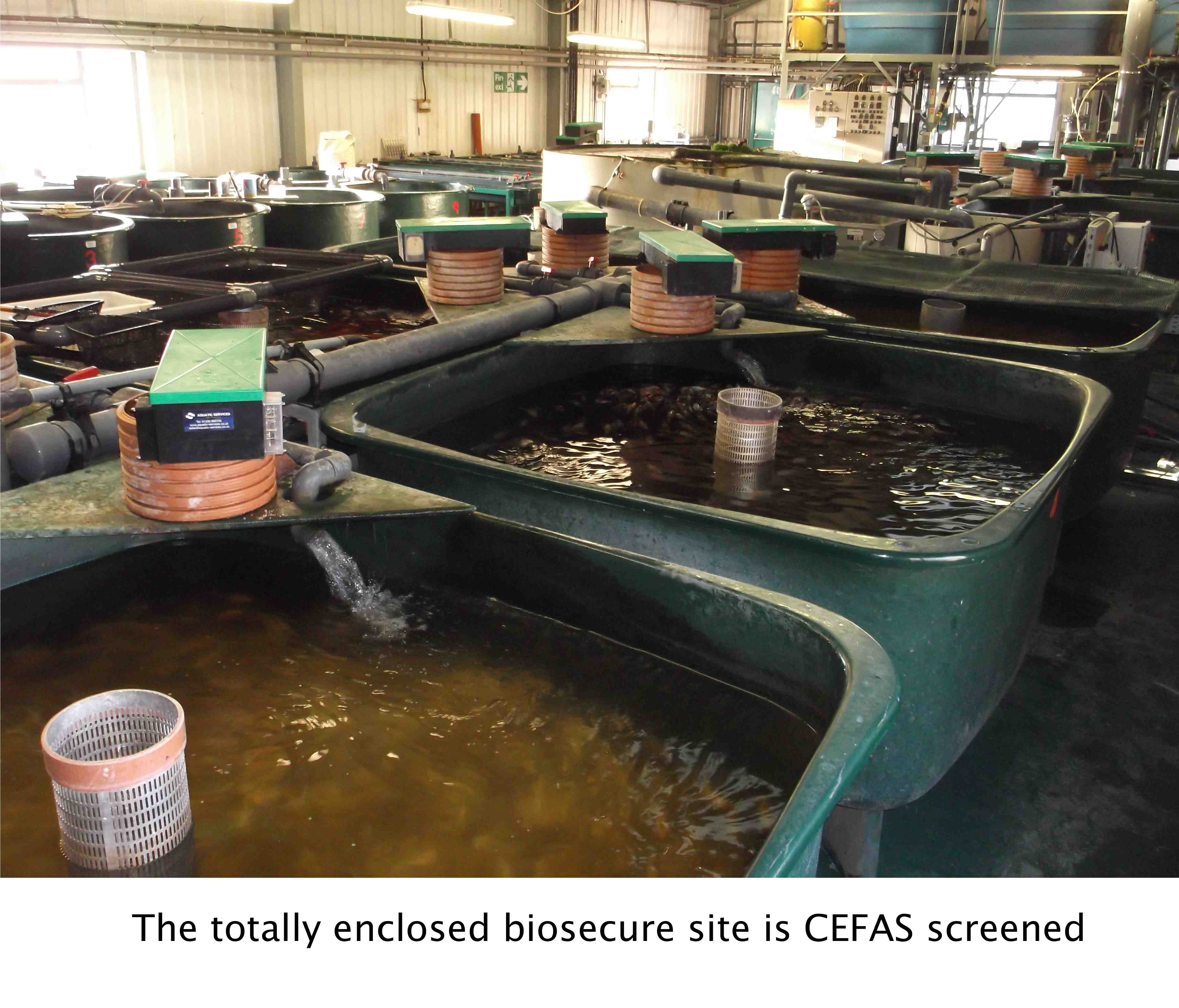The business is located on an idyllic 180-hectare Staffordshire parkland estate which forms the College’s Rodbaston Campus and is home to a wide range of land-based activities that will shape the next generation of young farmers and rural entrepreneurs.
Within the Aquaculture fish hatchery carp production facilities take the process from the development of high quality eggs, with the parent fish kept in the College’s own natural still-water pond, through spawning, larvae-hatch and growth from the fry stage through to a three month old fish of about 2” – 3” in size. While some are retained on site the majority are then moved on to other fish farms or fisheries.
Simon Marvin runs the operation, which has provided over five million young carp and tench for growing-on to major customers across the UK.
“We operate a totally enclosed biosecure site with regular fish health inspections and viral screening from CEFAS. We actively encourage visits to our fish hatchery and this is something which gives our customers a real sense of confidence, when they are looking to buy for their stock ponds.”
The high level of Biosecurity on the site is one of the major factors in guaranteeing buyers the right quality of stock and very high survival rates, which are paramount in commercial operations.
The college's fish hatchery is also an aquaculture learning facility. Not only can students learn the academic and theoretical aspects of their chosen career, they can acquire practical involvement in the running of a farm, a zoo, a horticulture business and a fishery.
Mr Marvin continued: “We are fully CEFAS (Centre for Environment, Fisheries and Agriculture Science) registered. Students can learn most of what they need to know about brood-stock conditioning, egg incubating, early rearing, growing and holding. Perhaps most important of all they can see how to make a business run in this sector with both the carp and the ornamental fish. Aquaculture is a fully integrated part of South Staffordshire College and we are a commercially run operation with high levels of customer satisfaction to sustain. This is vital to ensure that any surplus income generated helps to support student facilities and resources.”





